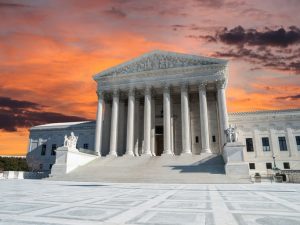 Yesterday, Justices Kennedy and Thomas penned a short, awkward statement that may well enter the annals as the saddest self-commentary on the Supreme Court ever. The statement, produced in its entirety below, may consist of a lone paragraph, but it speaks volumes about the Supreme Court’s steadfast refusal to confront the ethical dilemmas it’s created for itself.
Yesterday, Justices Kennedy and Thomas penned a short, awkward statement that may well enter the annals as the saddest self-commentary on the Supreme Court ever. The statement, produced in its entirety below, may consist of a lone paragraph, but it speaks volumes about the Supreme Court’s steadfast refusal to confront the ethical dilemmas it’s created for itself.
Regarding the petition for cert in the Tribune bankruptcy case:


Free Attorney Time Tracking Template For Smarter Billing
Tired of messy time logs? This free attorney time tracking template helps you bill with confidence and accuracy. Learn more in the full article.
“[G]iven the possibility that there might not be a quorum in this Court.” How could the Court fail to drum up 6 justices to hear a matter of such import? Well, if at least 4 of them are so financially conflicted that they cannot ethically rule on the case.
It turns out a whopping SEVEN of them are in that boat. SEVEN! Apparently, it was no accident that Kennedy and Thomas signed their names to this statement — they’re the ONLY justices who could. The rest of them are flat out incapable of dealing with a significant bankruptcy matter. The Borg had a more dependable 7 of 9 than we do.
Fix the Court compiled all the investments that put the justices in the recusal zone:
7 of 9 j's RECUSED from petition bc parties = major retirement funds they own, e.g.:
JGR: Eaton Vance, Gabelli, Blackrock, Vanguard
RBG: TIAA-CREF, Deutsche Bank, JPMorgan
SGB: TIAA, Deutsche, JPM
SAA: B'rock, Fidelity, V'guard, USAA
SS: B'rock, Nuveen
EK: V'guard
NMG: TIAA, USAA— Fix the Court (@FixTheCourt) April 3, 2018
In fairness, we should consider ourselves lucky the justices don’t just damn the ethics of the situation and barrel ahead and rule. That’s what some justices would have done.
So while we’re appreciative of the justices for showing, at least in this instance, that they’re not going to undermine our faith in the judicial system by making rulings with their checkbooks, it’s still a serious problem that this even came up in the first place.
Banks rarely need our tears, but seriously, the American economy deserves a Court capable of resolving disputes. As the banking sector has grown increasingly — one might say “dangerously” — consolidated, conflicts like these will come up any time a major dispute arises. To allow the justices to manage their own portfolios effectively knocks them out of adjudicating cases in fundamental areas of business law. We shouldn’t accept that from the Supreme Court.
And it’s not like there isn’t a proven, reliable strategy for overcoming these ethical quandaries. Government officials have been putting their assets in blind trusts for decades. Everything gets handed over to a financial advisor who then invests the money as they see fit and the official never knows specifically where the assets are invested. It does rob the official of their freedom to make their own investing decisions, but that’s a small price to pay to be public servant. Besides, whatever broker ends up running your account is almost definitely better at it than you are — at the very least the broker is spending more time and energy keeping up on the market and freaking out about trade wars than you are. There’s no reason for a bunch of robed law professors to manage their own money outside of a gambler’s rush.
It’s long past time to put a stop to this. We don’t need more recusals, we need more prophylactic measures to avoid conflicts before they arise. If the Chief Justice really cares about the institution as much as he says he does, he needs to take the leap and mandate that justices move their holdings into blind trusts.
He won’t do that of course, because he has a gut feeling that Blackrock’s just about to score big time.
 Joe Patrice is an editor at Above the Law and co-host of Thinking Like A Lawyer. Feel free to email any tips, questions, or comments. Follow him on Twitter if you’re interested in law, politics, and a healthy dose of college sports news.
Joe Patrice is an editor at Above the Law and co-host of Thinking Like A Lawyer. Feel free to email any tips, questions, or comments. Follow him on Twitter if you’re interested in law, politics, and a healthy dose of college sports news.
